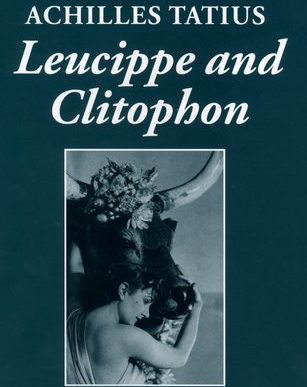Continuing to fill in lacunae in my classical education, I read Achilles Tatius’s Cleitophon and Leucippe (not just the famed debate on whether boys or women are better to love). The pairing of the title characters is delayed by many misadventures, though Cleitophon’s boy-loving cousin and advisor (smitten earlier with love for a boy who dies in an accident) Clinias sticks with him. Cleitophon is more than a little interested in nature (interrupting the complicated plot with digressions on the Nile, crocodiles, hippopatami, and phoenixes) and does not see anything unnatural in his cousin’s bent.

Cleitophon argues for the superiority of loving women with Menelaus (both agreeing on the fleeting blossom of boys, but differing on whether that enhances or detracts from its value). In a trial at Ephesus, he is accues of being “a sort of male prostitue… one of those who ape manhood when they are among women, while they count as women among men” by Sopater, an advocate for , after the “bishop” or Artemis who has provided Cleitophon sanctuary and recalls Thersander’s youth of wanton promiscuity. Sopater also suggests that the bishop has mounted Cleitophon: “He is a pretty stripling, too, with his cheeks still soft, and one still available for the bishop’s pleasures.” (8.10).
Preserving virginity and heterosexual marriage are the central concerns of this Hellenistic novel, but there is no stigma attached to boy-lovers, or to devoted boys (only to Thersander’s calculation and undue enjoyment at being many men’s pathicus). The two boy-lovers not a central character, but they are brave and loyal as none of the woman-loving supposed “friends” are. Moreover, their beloveds died (before being polluted by women and marriage) in masculine pursuits (trying to break a horse, and standing before the charge of a wild boar.
©5 July 1996, Stephen O. Murray

